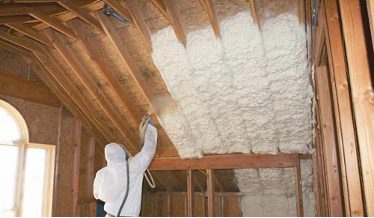The Importance of Air Sealing for a Comfortable Home

As we head into colder months, keeping your home comfortable and energy-efficient becomes a top priority. While insulation plays a significant role in maintaining temperature control, air sealing is just as important. Many homeowners don’t realize that gaps, cracks, and openings in their homes can let in cold air, making their heating systems work harder and increasing energy costs. Here’s why air sealing should be an essential part of your home improvement routine.
What is Air Sealing?
Air sealing refers to the process of identifying and closing gaps, cracks, and openings in the building’s envelope, which includes walls, ceilings, floors, doors, and windows. These openings allow air to leak in or out, causing drafts and heat loss. Common culprits of air leaks include spaces around windows, doors, plumbing pipes, electrical outlets, and chimneys.
Why Air Sealing is Important
- Improved Comfort
Air leaks can lead to uncomfortable temperature fluctuations in your home. Cold air can seep in through cracks, making your living spaces colder than they should be. Sealing these gaps prevents drafts and maintains a steady temperature, making your home more comfortable year-round. - Energy Savings
Air leaks are a significant source of energy waste. According to the U.S. Department of Energy, air leaks can account for 25% to 30% of a home’s heating and cooling energy use. By sealing these leaks, you can reduce the workload on your heating and cooling systems, saving money on your energy bills. - Preventing Ice Dams and Frozen Pipes
Cold air infiltration can cause ice dams in your attic, where warm air from your living spaces melts snow on the roof that refreezes, blocking proper drainage. Additionally, air leaks in unheated spaces like attics or crawl spaces can cause pipes to freeze, leading to costly damage. Air sealing keeps your home’s temperature even, preventing these issues. - Better Indoor Air Quality
Sealing your home also helps keep out dust, dirt, pollen, and other pollutants that may be entering from the outside. This contributes to better indoor air quality, making it easier to breathe and improving your overall health.
Common Areas to Air Seal in Your Home
- Attic: The attic is one of the most common places where air leaks occur. Make sure your attic hatch, vents, and any penetrations for plumbing or electrical wiring are properly sealed.
- Windows and Doors: Gaps around windows and doors are often overlooked. Caulking and weatherstripping can do wonders in preventing drafts and keeping the heat inside.
- Plumbing and Electrical Penetrations: Any holes or gaps around pipes, ducts, and electrical wires that pass through walls, ceilings, or floors should be sealed. These spaces can let warm air escape and cold air infiltrate.
- Crawl Spaces and Basements: Air can leak through cracks in the foundation or vents in crawl spaces and basements. Sealing these areas helps keep the warmth inside and moisture out.
Benefits of Professional Air Sealing
While DIY air sealing is possible, professional air sealing offers several advantages:
- Expert Evaluation: Professionals have the tools and knowledge to identify hard-to-find leaks and gaps that might otherwise go unnoticed.
- Better Results: Professionals use high-quality materials and techniques that ensure your home is sealed effectively for long-lasting benefits.
- Comprehensive Solutions: A professional can also provide insulation upgrades as part of the air sealing process, further enhancing your home’s energy efficiency.
Conclusion
Air sealing is a simple yet effective way to improve your home’s energy efficiency, comfort, and safety. By addressing leaks and gaps in your building’s envelope, you can reduce heating and cooling costs, prevent damage from freezing pipes, and enhance the overall comfort of your home. At Koala Insulation of Baltimore, we specialize in air sealing solutions that will help your home stay warm and cozy throughout the winter months. Call us today at (667) 241-9099 to learn how we can help with your air sealing needs!
Find Your Location


Get a quote


